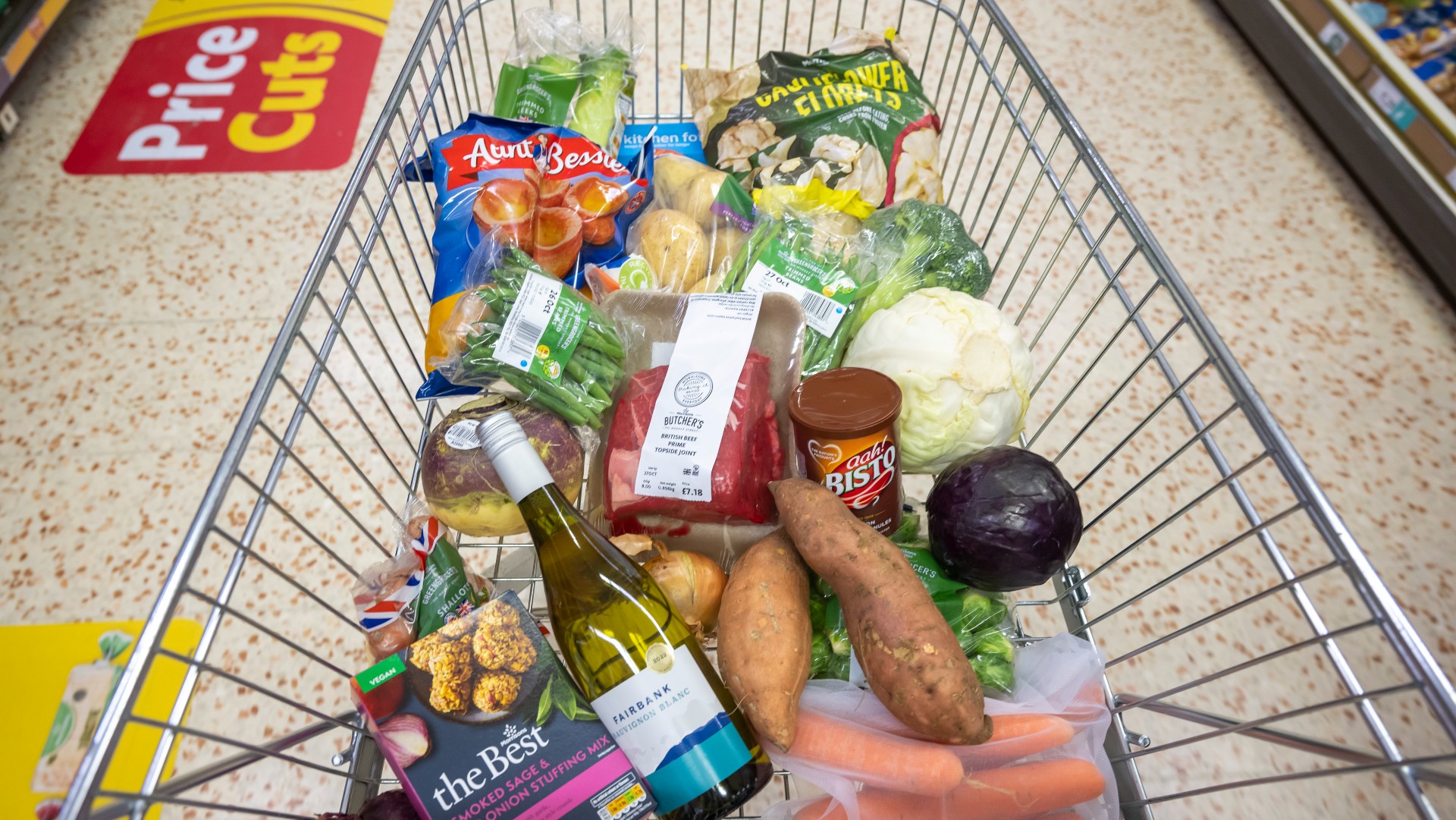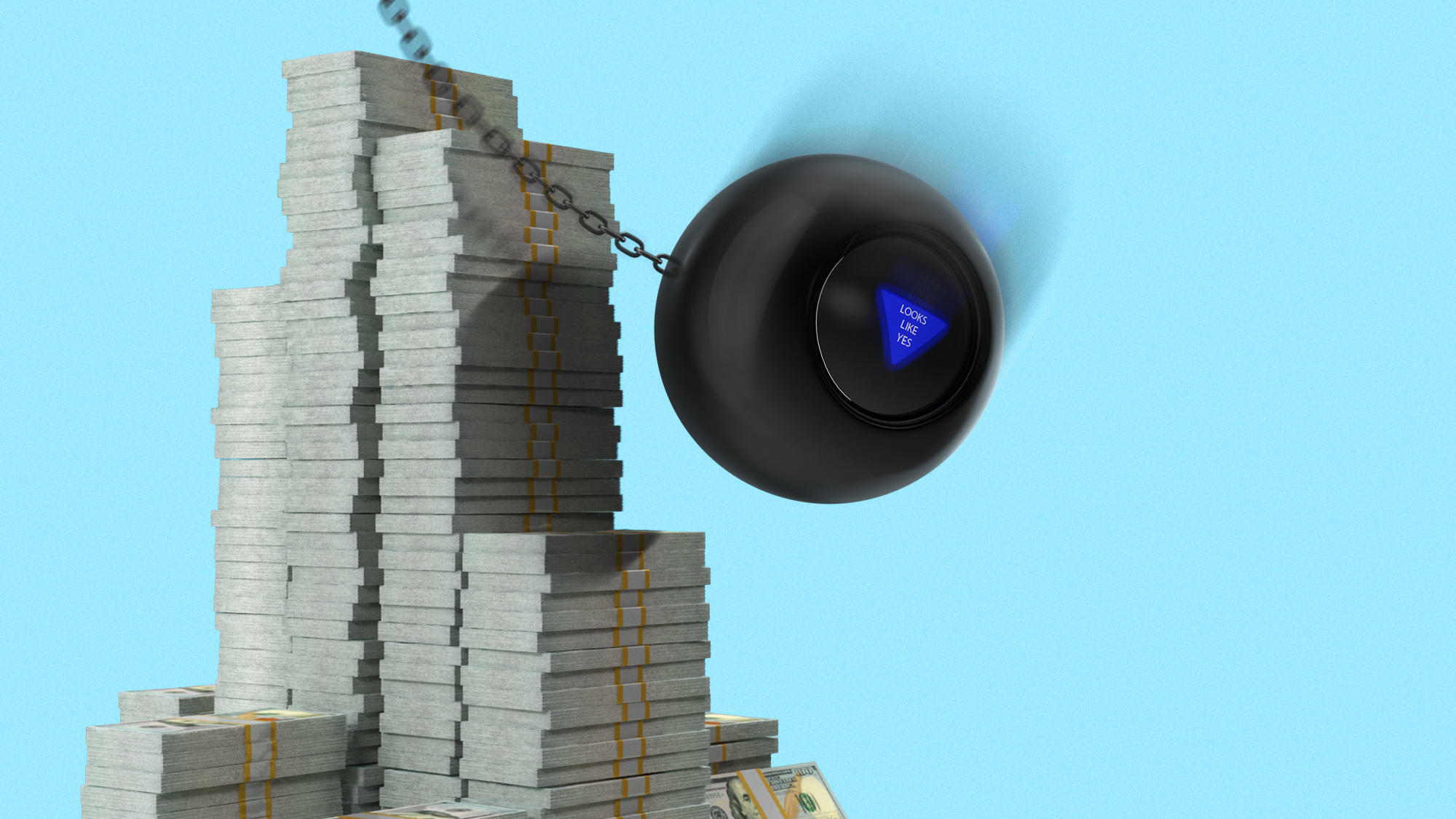Food price caps: a return to 1970s living in UK?
Government plan labelled ‘hare-brained’ as industry bosses warn it could lead to shortages, push up inflation and cut competition

A free daily email with the biggest news stories of the day – and the best features from TheWeek.com
You are now subscribed
Your newsletter sign-up was successful
Plans to introduce “1970s-style” price caps on food staples has been widely derided by supermarket and industry bosses, who warn it could lead to shortages, push up inflation and cut competition.
The Sunday Telegraph reported that Rishi Sunak’s aides “have started work on a deal with supermarkets akin to an agreement in France in which the country’s major retailers charge the ‘lowest possible amount’ for some essential food products” such as bread and milk.
“The move would amount to the biggest attempt to manage supermarket prices since controls established by Edward Heath in 1973,” said the paper.
The Week
Escape your echo chamber. Get the facts behind the news, plus analysis from multiple perspectives.

Sign up for The Week's Free Newsletters
From our morning news briefing to a weekly Good News Newsletter, get the best of The Week delivered directly to your inbox.
From our morning news briefing to a weekly Good News Newsletter, get the best of The Week delivered directly to your inbox.
‘Opt-in scheme’
No. 10 has insisted it would not issue price controls directly but rather the opt-in scheme would be voluntary and would allow supermarkets to select which items they capped.
The Times said the plan “was suggested as the price of necessary food items continues to rise, with more than a third of consumers having changed their weekly shop as a result”, according to a YouGov poll for the paper. It found that 48% of voters have moved to cheaper brands, 43% have cut back on the amount of food they buy, and 30% have changed where they shop.
Even as energy cost pressures across Europe have eased in recent months, food prices have continued to soar, “prompting increasingly unconventional market interventions from politicians trying to assuage public anger”, reported the Financial Times.
Central and eastern European states hardest hit by rising prices, such as Hungary and Croatia, “have moved to cap the cost of essentials to shield the most vulnerable, who tend to spend more of their income on food”, said the paper.
A free daily email with the biggest news stories of the day – and the best features from TheWeek.com
Greece has taken an alternative approach to limiting prices by capping retailers’ profit margins on food, while Spain is among those to cut VAT on food. France, which has provided the model for the UK, has taken a less interventionist approach by negotiating a looser agreement with supermarkets to offer the lowest possible price on a selection of essential items.
Writing in The Guardian in favour of price controls, Robert Reich, a former US labor secretary, said that the current rate of inflation “is analogous to the inflation after the second world war when economists advocated temporary price controls to buy time to overcome supply bottlenecks and prevent corporate profiteering”.
‘Soviet-style shortages and queues’
“You don’t need to have studied economics in any depth to understand the problem with price controls,” wrote Ross Clark in The Spectator. “In a free market, prices settle at the intersection of the supply and demand curves, ensuring that both are kept in balance. Mess around with that by trying to fix prices, and you are liable to end up with Soviet-style shortages and queues.”
A statement by the British Retail Consortium (BRC), backed by Tesco, Sainsbury’s, Morrisons and Waitrose, said the plan “will not make a jot of difference to prices” as the cost of foodstuffs has risen due to a combination of the disruption to global supply chains during the pandemic and Russia’s invasion of Ukraine, not as the result of profiteering supermarkets.
Speaking to The Telegraph, one retail boss called it a “hare-brained idea”, while a cabinet minister argued that price caps would not work “in this day and age” and that produce would be “sold elsewhere” if supermarkets refused to increase their prices.
“There are two key problems with price controls: they don’t work, and they destroy the purpose of the price mechanism, which is the efficient allocation of goods and services,” said Stephen Pollard in the Daily Express.
Sunak has vowed to halve inflation to 5% by the end of the year, and “the pledge is seen as central to the Conservatives’ pitch to the public at the next general election and prompted Jeremy Hunt, the Chancellor of the Exchequer, to admit he would accept a recession in the UK if it would reduce inflation”, said The Telegraph.
But, said Pollard in the Express: “The problem is that this is all about politics, not economics.”
-
 Local elections 2026: where are they and who is expected to win?
Local elections 2026: where are they and who is expected to win?The Explainer Labour is braced for heavy losses and U-turn on postponing some council elections hasn’t helped the party’s prospects
-
 6 of the world’s most accessible destinations
6 of the world’s most accessible destinationsThe Week Recommends Experience all of Berlin, Singapore and Sydney
-
 How the FCC’s ‘equal time’ rule works
How the FCC’s ‘equal time’ rule worksIn the Spotlight The law is at the heart of the Colbert-CBS conflict
-
 Is the US in a hiring recession?
Is the US in a hiring recession?Today's Big Question The economy is growing. Job openings are not.
-
 Will Trump’s 10% credit card rate limit actually help consumers?
Will Trump’s 10% credit card rate limit actually help consumers?Today's Big Question Banks say they would pull back on credit
-
 What will the US economy look like in 2026?
What will the US economy look like in 2026?Today’s Big Question Wall Street is bullish, but uncertain
-
 Is $140,000 the real poverty line?
Is $140,000 the real poverty line?Feature Financial hardship is wearing Americans down, and the break-even point for many families keeps rising
-
 Fast food is no longer affordable for low-income Americans
Fast food is no longer affordable for low-income AmericansThe explainer Cheap meals are getting farther out of reach
-
 Is the UK headed for recession?
Is the UK headed for recession?Today’s Big Question Sluggish growth and rising unemployment are ringing alarm bells for economists
-
 Why has America’s economy gone K-shaped?
Why has America’s economy gone K-shaped?Today's Big Question The rich are doing well. Everybody else is scrimping.
-
 Is the US in recession?
Is the US in recession?Today's Big Question ‘Unofficial signals’ are flashing red